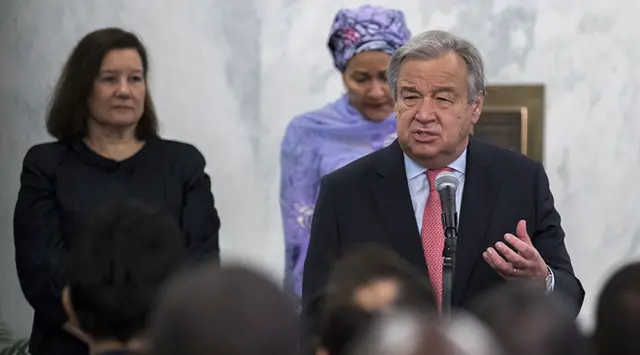More women in India have been part of the financial system with their own bank accounts after years of being excluded from the banking sector.
In the highly patriarchal set-up of the Indian society, women were always kept out of the bounds of formal financial fold, with banking and monetary activities being the sole prerogative of men.
But now the system appears to be becoming more equalizing now, thanks to the Pradhan Mantri Jan Dhan Yojana (Prime Minister's Public Wealth Scheme or PMJDY), a scheme launched on Aug. 28, 2014, by Prime Minister Narendra Modi's government.
As per the recent data, more than 60 percent Jan Dhan accounts have been opened in rural areas, most of which belong to women making them financially empowered like never before.
The sole objective of the scheme was to take banking services to the doors of the millions of Indians who were unbanked.
When launched, it was the largest outreach program in the world with the aim of encouraging both men and women living in rural areas and below poverty line, who were traditionally the under-banked segments of the society to access banks and other financial services. It now appears that the scheme has achieved its objectives, especially for women.
A recent data has suggested that almost 220 million bank accounts have been opened within 20 months of the launch of the scheme. The data has also pointed out that access to banking services is now available to more than 15 percent of the unbanked population.
However, what is staggering has been the find that more women have opened their accounts under the scheme as compared to men.
The number of women accounts in percentage increased by 24 percent between 2014 and 2015 while it was around 14 percent for men. In total, 77 million women opened bank accounts between 2014-2015, from the 281 million bank accounts in 2014.
The use of financial services was also the biggest jump among "banked" women in South Asia, with India leading by providing banking services to women and closing gender gap in banking.
The banking sector, in turn, has also promoted the use of Jan Dhan accounts, with India's largest public sector undertaking bank, State Bank of India, waiving off requirement of minimum balance on bank accounts in order to encourage people, especially women, to open accounts.
"We have been approached in large numbers by women from various social classes and nearby villages areas to open accounts ... The Jan Dhan scheme has had a large impact and its reach has been far and wide. More and more women are inquiring about opening accounts and getting benefits under the scheme," said A. Singh, a bank manager.
"The scheme was not really intended towards women. However, the country's setup has been such that women were left out of financial services," said Preeti Shourie, an associate with a women welfare non-governmental organization.
"Therefore, the scheme has unintentionally broken social barriers and encouraged women to protect their savings through banking services. It has been heartening for us to see women approaching us and inquiring about banking and its related services."
Women were especially encouraged to open bank accounts under Jan Dhan as the government routed subsidies and made welfare payments through them. The central accounting system also assisted in plugging leakages in subsidy transfer since Jan Dhan accounts promoted transparency in financial transactions.
As per India's Economic Survey for 2015-16, a fall of over 24 percent was recorded in cooking gas subsidy transfers leakages and more beneficiaries have been brought under the scheme who were earlier excluded due to lack of bank accounts.
"All these means and infrastructures have been largely facilitated by the creation of Jan Dhan accounts as also the Aadhaar card facility. This means that with the removal of above-mentioned institutional barriers, women now are confident towards accessing and operating their bank accounts," said Prof R.K. Chaudhury, an economic expert.
Women are happy to see that their life has been made easier by the scheme. "I have been very happy with the services I now get with my new account. Our cooking gas subsidy and also the pension now arrives in the account directly. I no longer have to visit the government offices to get access to these services," said 65-year-old Sheetla Devi, who lives in Delhi.
"With my new account, my college scholarship directly arrives in my account. Earlier, I had to go every month to the administration office and stand in long queue to access my scholarship. Now it is easier and I am able to better focus on my studies," said Richa Singh, a Delhi University student.
Banks have also started giving loans to women to encourage them to start small businesses under Mudra Scheme (money scheme) as they had Jan Dhan accounts with zero balance. All this has been done in order to let women take stride towards development and make them an equal beneficiary of economic progress, said experts.
"The country that is fast growing and making economy more inclusive, encouraging women to be financially included is of great significance. It is also being predicted that with financial independence, women will in turn promote literacy among girls in their families and unlock opportunities that were closed to them since a long time," said Rubin Gupta, an economist.
With both banking services and encouragement to females, India has found itself being called a global "bright spot" by international bodies like the International Monetary Fund and others for its pro-people and pro-women schemes.
(ASIA PACIFIC DAILY)
 简体中文
简体中文

